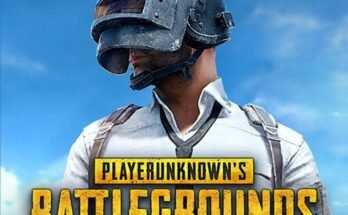Squad Game: A New Era of Gaming
Introduction:
In recent years, the gaming world has witnessed an incredible rise in the popularity of multiplayer online games. These games have revolutionized the gaming industry, offering a platform where players from across the globe can come together, collaborate, compete, and build communities. One such game that has grabbed the attention of millions of gamers worldwide is Squad, a tactical military shooter that aims to deliver an immersive and realistic combat experience. With its emphasis on teamwork, strategy, and communication, Squad has carved a unique niche in the crowded world of online shooters. This article will delve into what makes Squad a standout title, its core gameplay mechanics, the impact it has had on the gaming community, and why it continues to captivate both casual players and hardcore enthusiasts alike.
The Origins of Squad:
Squad was developed by Offworld Industries, a Canadian game development studio founded by veterans of the gaming industry. The game’s initial development began in 2014, and it was officially released in early access on Steam in 2015. The game’s design philosophy is rooted in realism and teamwork, with a strong focus on creating a military shooter that emphasizes cooperation rather than individual performance. The developers drew inspiration from real-world military tactics, and they set out to create a game that challenges players to think strategically, coordinate with teammates, and operate as part of a larger, cohesive unit.
The development of Squad was also influenced by the success of its spiritual predecessors, particularly Project Reality, a mod for Battlefield 2 that gained a dedicated following due to its tactical depth and realistic gameplay. The developers of Squad sought to build upon the core concepts of Project Reality, offering a more modern, accessible experience while maintaining the same level of immersion and teamwork that made the mod so popular.
Core Gameplay Mechanics:
At its heart, Squad is a large-scale, tactical first-person shooter (FPS) that focuses on teamwork, communication, and strategic decision-making. The game is set in a variety of realistic environments, ranging from urban settings to open fields, and features multiple factions, each with its own unique equipment, vehicles, and tactics.
The game’s most distinguishing feature is its emphasis on team coordination. Players are organized into squads, each led by a squad leader who is responsible for directing the group and making key tactical decisions. Squad leaders are equipped with tools that allow them to mark objectives, direct fire, and communicate with other squads and the command structure. Unlike traditional FPS games where players can often go solo, Squad requires players to rely on one another to achieve success.
Squad-Based Combat:
In Squad, players are divided into two opposing teams, each made up of several squads. Each squad typically consists of six players, and it’s the squad leader’s responsibility to ensure that the squad functions effectively within the larger context of the game. Players can choose from a variety of roles within their squad, such as riflemen, medics, engineers, and machine gunners. Each role comes with its own specific responsibilities and abilities, contributing to the overall success of the squad.
The primary objective in most Squad game modes is to capture and defend strategic points on the map, often referred to as “flags” or “zones.” To capture a flag, a squad must hold the area for a specific amount of time, which often leads to intense firefights and the need for coordination and timing. While combat is a key element of the game, players must also pay attention to logistics, such as resupplying ammunition, constructing defensive positions, and managing the movement of vehicles.
Realistic Combat:
One of the standout features of Squad is its focus on realism. The game employs a ballistics system that simulates the effects of gravity, wind, and bullet drop, making long-range shots a challenge that requires skill and precision. Additionally, the game features an extensive inventory system that includes a wide variety of weapons, equipment, and vehicles, all of which can be used strategically in battle.
The medical system in Squad also adds a layer of realism, as players can revive injured teammates and treat wounds on the battlefield. Medics are vital to the success of a squad, as they can keep teammates alive in the heat of battle and ensure that the squad maintains its fighting strength. However, unlike many other shooters, players can be permanently eliminated from a round if they are killed and cannot be revived, adding an element of tension to every engagement.
Vehicles also play a significant role in Squad. Players can operate a range of military vehicles, including armored personnel carriers (APCs), tanks, helicopters, and logistical trucks. These vehicles can be used to transport troops, provide fire support, or create strategic advantages on the battlefield. However, driving and operating these vehicles requires a high level of coordination between players, as they must be protected from enemy fire and used strategically to achieve objectives.
Teamwork and Communication:
Perhaps the most crucial aspect of Squad is its emphasis on teamwork and communication. In a typical match, players must rely on clear and effective communication to coordinate their actions, plan strategies, and ensure that objectives are achieved. Squad leaders must communicate with their teammates to issue orders, while players must listen to their leaders and execute those orders effectively. This often involves using voice chat, either within the squad or across the entire team, to relay critical information.
The importance of communication extends beyond just the squad. In Squad, players must also communicate with other squads and the command structure to ensure that the entire team is working toward the same goal. This requires a high level of coordination and planning, as well as the ability to adapt to changing circumstances on the battlefield.
The game also encourages players to work together by limiting the effectiveness of individual actions. For example, players cannot simply run around the map shooting at enemies with reckless abandon; they must consider their positioning, cover, and the bigger picture. This forces players to think strategically and work as a team to overcome challenges, whether that’s holding a defensive position, executing a flanking maneuver, or coordinating an assault on an enemy stronghold.
Squad Roles and Specialization:
To further enhance the teamwork aspect, Squad features a range of specialized roles that players can choose from. These roles are designed to encourage players to collaborate and contribute to the squad’s success in different ways. Some of the key roles in Squad include:
- Rifleman: The standard infantry unit that carries a rifle and basic equipment. Riflemen are versatile and can be used in a variety of situations.
- Medic: A vital role responsible for healing and reviving teammates. Medics play a crucial role in keeping the squad alive during intense firefights.
- Engineer: Engineers are responsible for building fortifications, repairing vehicles, and laying down defensive structures such as sandbags and barbed wire.
- Machine Gunner: The machine gunner provides suppressive fire to pin down enemies and support the squad during offensive or defensive maneuvers.
- Marksman: Marksmen are equipped with scoped rifles and excel at long-range combat, providing accurate fire support for the squad.
Each of these roles is essential to the success of the squad, and players are encouraged to specialize in one or more roles to contribute to the overall mission.
The Community and Modding Support:
One of the reasons for Squad‘s continued success is its vibrant and passionate community. The game has a dedicated player base that supports the development of the game through feedback, testing, and content creation. The developers of Squad have also embraced the modding community, allowing players to create custom maps, game modes, and modifications.
Modding support has been a significant factor in keeping the game fresh and exciting, as it allows the community to add new content and tweak the gameplay to suit their preferences. This has led to the creation of numerous mods that introduce new factions, weapons, and vehicles, as well as custom game modes that cater to different playstyles.
Squad’s Impact on the Gaming Industry:
Squad has had a significant impact on the gaming industry, particularly within the tactical shooter genre. While many modern shooters have leaned toward fast-paced action and arcade-style gameplay, Squad has bucked the trend by focusing on realism, strategy, and team-based combat. The game has also helped to revive interest in military simulation games, offering a more immersive and authentic experience than many other titles on the market.
Additionally, Squad has set a new standard for teamwork and communication in online shooters. The game’s emphasis on collaboration, coordination, and strategy has influenced other games in the genre, inspiring developers to incorporate more team-oriented mechanics and deeper tactical elements into their own titles.
Conclusion:
In a world where fast-paced, run-and-gun shooters dominate the gaming landscape, Squad offers a refreshing alternative by focusing on realism, tactical depth, and teamwork. Its emphasis on collaboration, strategic thinking, and communication has garnered it a dedicated fanbase and set it apart from other multiplayer shooters. Whether you’re a seasoned veteran of military simulators or a newcomer looking for a more immersive gaming experience, Squad has something to offer. As the game continues to evolve, it’s clear that Squad has solidified its place in the annals of gaming history as one of the premier tactical shooters of its generation.


